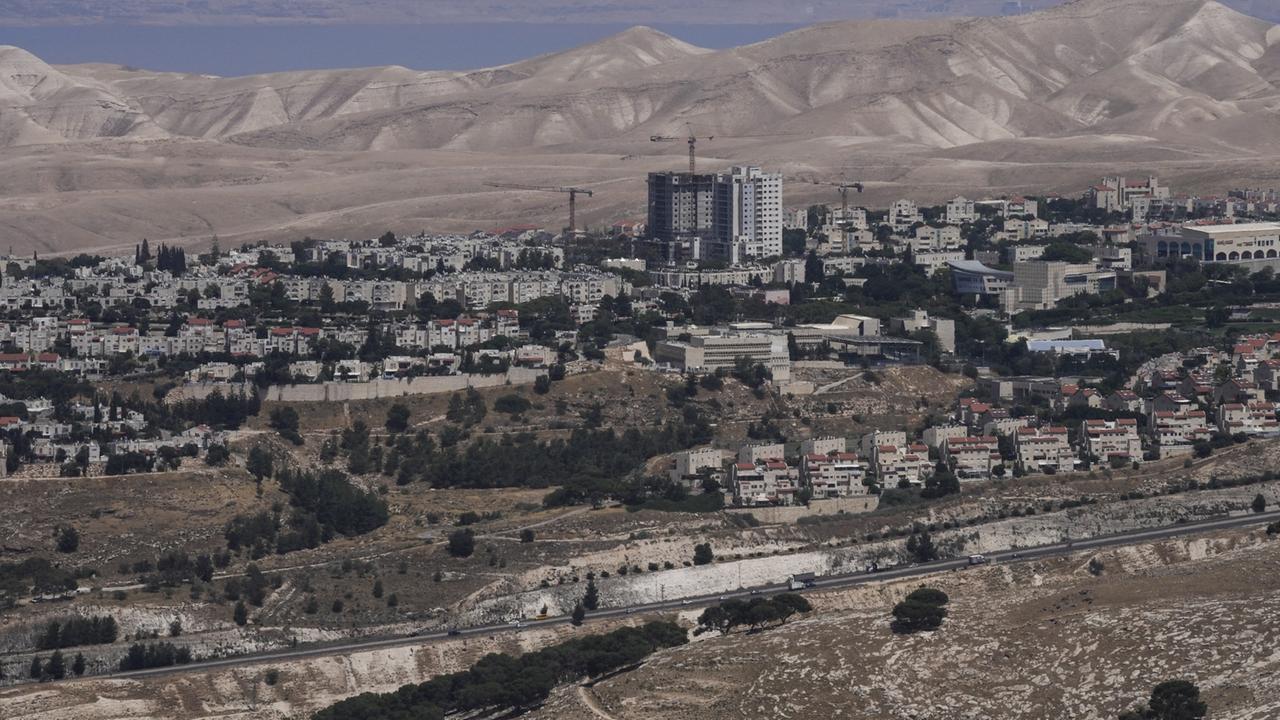Israel's settlements on occupied territory in the West Bank violate international law. Nevertheless, more and more settlers are coming to the so-called C areas. They see the law on their side.
If you are traveling in the occupied West Bank these days and weeks, you will see construction going on in many corners. Israeli settlements are being expanded – according to the Peace Now organization, 43 new so-called outposts have been established since October 7, 2023. Almost 9,000 new housing units have been approved, funded by the Israeli state.
Transferring population into occupied territory is illegal under international law, but that's exactly what happened: in the mid-1990s, at the time of the Oslo Accords, around 150,000 Jewish settlers lived in the West Bank. There are now around half a million.
“We guard the borders”
Eitan Melet is one of them: For a year now, he and his wife have been running a farm on a hill in the middle of the West Bank. He says the Jewish presence here is important. And: This is state land. He is here to change reality: “We have made that our task here locally. We guard the borders. It is a national task that we have taken on for the entire people of Israel.”
In a sense, Melet sees himself as Israel's border guard: “We guard the state's borders, we ensure that the area remains undeveloped,” he explains. “Practically speaking, we implement this task through agriculture. We have a large herd of cattle grazing right down in the wadi. 100 cattle. Everywhere we are, we are essentially setting a new frontier.”
Settlers drive out Palestinians
There are settler organizations that do even more. They ensure that Palestinians' houses have to be demolished – even in court: over 900 buildings have been destroyed since October 7th alone. Hundreds of families were displaced. What is happening is also called the battle for the C areas. According to the Oslo Accords, this is around 62 percent of the area of the West Bank. Israel is responsible for civil administration and security here.
Naomi Khan from the Regavim organization sees it this way: “It's international law. The Palestinian Authority, the Europeans and the Americans have signed it. Nothing can happen here without Israeli permission. Everything that is built (by the Palestinians) – water pipes, Infrastructure – all without Israeli permission. The illegal constructions you see here are a violation of international law.”
No permits for Palestinians
The people of Regavim point out the landscape from a vantage point. Your problem: Around 300,000 Palestinians live in the C areas. Tamar Sikurel, spokesperson for the organization, says: “There is the village of Abu Salman and behind it are the villages of Raz Afia and Khablet. Over there we can see the settlement of Alfei Menashe. There is a very clear connection between the villages: Raz Afia and Khablet have grown together into one block. That's C area, that's where the village is, okay. But it's slowly migrating into the area and it's all illegal construction.”
But there are no building permits for Palestinians from the Israeli authorities – the people at Regavim are proud that they are building less than ever.
Who owns the West Bank?
And Naomi Khan thinks even bigger when she calls the entire West Bank by the biblical names Judea and Samaria: “Who owns Judea and Samaria? In 1949, when the Jordanians occupied and annexed the land, it was called the West Bank for the first time. All nations have condemned the illegal occupation. When did Palestine, which is now called Palestinian land, never exist?
While the international community condemns Israel's settlement construction, Regavim's story goes differently: Palestinians would appropriate land in the C areas – by building without Israeli permission. This has become Israeli government policy under Benjamin Netanyahu and his right-wing extremist coalition partners.





